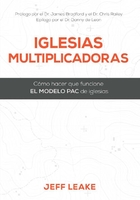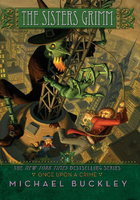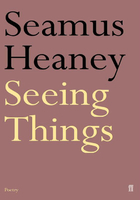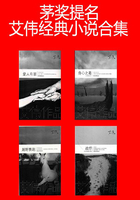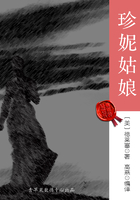Never had I seen a year going out, or going on, under quieter circumstances. Eighteen hundred and fifty-nine had but another day to live, and truly its end was Peace on that sea-shore that morning.
So settled and orderly was everything seaward, in the bright light of the sun and under the transparent shadows of the clouds, that it was hard to imagine the bay otherwise, for years past or to come, than it was that very day. The Tug-steamer lying a little off the shore, the Lighter lying still nearer to the shore, the boat alongside the Lighter, the regularly-turning windlass aboard the Lighter, the methodical figures at work, all slowly and regularly heaving up and down with the breathing of the sea, all seemed as much a part of the nature of the place as the tide itself. The tide was on the flow, and had been for some two hours and a half; there was a slight obstruction in the sea within a few yards of my feet: as if the stump of a tree, with earth enough about it to keep it from lying horizontally on the water, had slipped a little from the land-and as I stood upon the beach and observed it dimpling the light swell that was coming in, I cast a stone over it.
So orderly, so quiet, so regular-the rising and falling of the Tug-steamer, the Lighter, and the boat-the turning of the windlass-the coming in of the tide-that I myself seemed, to my own thinking, anything but new to the spot. Yet, I had never seen it in my life, a minute before, and had traversed two hundred miles to get at it. That very morning I had come bowling down, and struggling up, hill-country roads; looking back at snowy summits; meeting courteous peasants well to do, driving fat pigs and cattle to market: noting the neat and thrifty dwellings, with their unusual quantity of clean white linen, drying on the bushes; having windy weather suggested by every cotter's little rick, with its thatch straw-ridged and extra straw-ridged into overlapping compartments like the back of a rhinoceros. Had I not given a lift of fourteen miles to the Coast-guardsman (kit and all), who was coming to his spell of duty there, and had we not just now parted company? So it was; but the journey seemed to glide down into the placid sea, with other chafe and trouble, and for the moment nothing was so calmly and monotonously real under the sunlight as the gentle rising and falling of the water with its freight, the regular turning of the windlass aboard the Lighter, and the slight obstruction so very near my feet.
O reader, haply turning this page by the fireside at Home, and hearing the night wind rumble in the chimney, that slight obstruction was the uppermost fragment of the Wreck of the Royal Charter, Australian trader and passenger ship, Homeward bound, that struck here on the terrible morning of the twenty-sixth of this October, broke into three parts, went down with her treasure of at least five hundred human lives, and has never stirred since!
From which point, or from which, she drove ashore, stern foremost; on which side, or on which, she passed the little Island in the bay, for ages henceforth to be aground certain yards outside her; these are rendered bootless questions by the darkness of that night and the darkness of death. Here she went down.
Even as I stood on the beach with the words 'Here she went down!' in my ears, a diver in his grotesque dress, dipped heavily over the side of the boat alongside the Lighter, and dropped to the bottom. On the shore by the water's edge, was a rough tent, made of fragments of wreck, where other divers and workmen sheltered themselves, and where they had kept Christmas-day with rum and roast beef, to the destruction of their frail chimney. Cast up among the stones and boulders of the beach, were great spars of the lost vessel, and masses of iron twisted by the fury of the sea into the strangest forms. The timber was already bleached and iron rusted, and even these objects did no violence to the prevailing air the whole scene wore, of having been exactly the same for years and years.
Yet, only two short months had gone, since a man, living on the nearest hill-top overlooking the sea, being blown out of bed at about daybreak by the wind that had begun to strip his roof off, and getting upon a ladder with his nearest neighbour to construct some temporary device for keeping his house over his head, saw from the ladder's elevation as he looked down by chance towards the shore, some dark troubled object close in with the land. And he and the other, descending to the beach, and finding the sea mercilessly beating over a great broken ship, had clambered up the stony ways, like staircases without stairs, on which the wild village hangs in little clusters, as fruit hangs on boughs, and had given the alarm. And so, over the hill-slopes, and past the waterfall, and down the gullies where the land drains off into the ocean, the scattered quarrymen and fishermen inhabiting that part of Wales had come running to the dismal sight-their clergyman among them. And as they stood in the leaden morning, stricken with pity, leaning hard against the wind, their breath and vision often failing as the sleet and spray rushed at them from the ever forming and dissolving mountains of sea, and as the wool which was a part of the vessel's cargo blew in with the salt foam and remained upon the land when the foam melted, they saw the ship's life-boat put off from one of the heaps of wreck; and first, there were three men in her, and in a moment she capsized, and there were but two; and again, she was struck by a vast mass of water, and there was but one; and again, she was thrown bottom upward, and that one, with his arm struck through the broken planks and waving as if for the help that could never reach him, went down into the deep.
It was the clergyman himself from whom I heard this, while I stood on the shore, looking in his kind wholesome face as it turned to the spot where the boat had been. The divers were down then, and busy. They were 'lifting' to-day the gold found yesterday-some five-and-twenty thousand pounds. Of three hundred and fifty thousand pounds' worth of gold, three hundred thousand pounds' worth, in round numbers, was at that time recovered. The great bulk of the remainder was surely and steadily coming up. Some loss of sovereigns there would be, of course; indeed, at first sovereigns had drifted in with the sand, and been scattered far and wide over the beach, like sea-shells; but most other golden treasure would be found. As it was brought up, it went aboard the Tug-steamer, where good account was taken of it. So tremendous had the force of the sea been when it broke the ship, that it had beaten one great ingot of gold, deep into a strong and heavy piece of her solid iron-work: in which, also, several loose sovereigns that the ingot had swept in before it, had been found, as firmly embedded as though the iron had been liquid when they were forced there. It had been remarked of such bodies come ashore, too, as had been seen by scientific men, that they had been stunned to death, and not suffocated. Observation, both of the internal change that had been wrought in them, and of their external expression, showed death to have been thus merciful and easy. The report was brought, while I was holding such discourse on the beach, that no more bodies had come ashore since last night. It began to be very doubtful whether many more would be thrown up, until the north-east winds of the early spring set in. Moreover, a great number of the passengers, and particularly the second-class women-passengers, were known to have been in the middle of the ship when she parted, and thus the collapsing wreck would have fallen upon them after yawning open, and would keep them down. A diver made known, even then, that he had come upon the body of a man, and had sought to release it from a great superincumbent weight; but that, finding he could not do so without mutilating the remains, he had left it where it was.
It was the kind and wholesome face I have made mention of as being then beside me, that I had purposed to myself to see, when I left home for Wales. I had heard of that clergyman, as having buried many scores of the shipwrecked people; of his having opened his house and heart to their agonised friends; of his having used a most sweet and patient diligence for weeks and weeks, in the performance of the forlornest offices that Man can render to his kind; of his having most tenderly and thoroughly devoted himself to the dead, and to those who were sorrowing for the dead. I had said to myself, 'In the Christmas season of the year, I should like to see that man!' And he had swung the gate of his little garden in coming out to meet me, not half an hour ago.
So cheerful of spirit and guiltless of affectation, as true practical Christianity ever is! I read more of the New Testament in the fresh frank face going up the village beside me, in five minutes, than I have read in anathematising discourses (albeit put to press with enormous flourishing of trumpets), in all my life. I heard more of the Sacred Book in the cordial voice that had nothing to say about its owner, than in all the would-be celestial pairs of bellows that have ever blown conceit at me.
We climbed towards the little church, at a cheery pace, among the loose stones, the deep mud, the wet coarse grass, the outlying water, and other obstructions from which frost and snow had lately thawed. It was a mistake (my friend was glad to tell me, on the way) to suppose that the peasantry had shown any superstitious avoidance of the drowned; on the whole, they had done very well, and had assisted readily. Ten shillings had been paid for the bringing of each body up to the church, but the way was steep, and a horse and cart (in which it was wrapped in a sheet) were necessary, and three or four men, and, all things considered, it was not a great price. The people were none the richer for the wreck, for it was the season of the herring-shoal-and who could cast nets for fish, and find dead men and women in the draught?
He had the church keys in his hand, and opened the churchyard gate, and opened the church door; and we went in.
It is a little church of great antiquity; there is reason to believe that some church has occupied the spot, these thousand years or more. The pulpit was gone, and other things usually belonging to the church were gone, owing to its living congregation having deserted it for the neighbouring school-room, and yielded it up to the dead. The very Commandments had been shouldered out of their places, in the bringing in of the dead; the black wooden tables on which they were painted, were askew, and on the stone pavement below them, and on the stone pavement all over the church, were the marks and stains where the drowned had been laid down. The eye, with little or no aid from the imagination, could yet see how the bodies had been turned, and where the head had been and where the feet. Some faded traces of the wreck of the Australian ship may be discernible on the stone pavement of this little church, hundreds of years hence, when the digging for gold in Australia shall have long and long ceased out of the land.
Forty-four shipwrecked men and women lay here at one time, awaiting burial. Here, with weeping and wailing in every room of his house, my companion worked alone for hours, solemnly surrounded by eyes that could not see him, and by lips that could not speak to him, patiently examining the tattered clothing, cutting off buttons, hair, marks from linen, anything that might lead to subsequent identification, studying faces, looking for a scar, a bent finger, a crooked toe, comparing letters sent to him with the ruin about him. 'My dearest brother had bright grey eyes and a pleasant smile,' one sister wrote. O poor sister! well for you to be far from here, and keep that as your last remembrance of him!
The ladies of the clergyman's family, his wife and two sisters-in-law, came in among the bodies often. It grew to be the business of their lives to do so. Any new arrival of a bereaved woman would stimulate their pity to compare the description brought, with the dread realities. Sometimes, they would go back able to say, 'I have found him,' or, 'I think she lies there.' Perhaps, the mourner, unable to bear the sight of all that lay in the church, would be led in blindfold. Conducted to the spot with many compassionate words, and encouraged to look, she would say, with a piercing cry, 'This is my boy!' and drop insensible on the insensible figure.
He soon observed that in some cases of women, the identification of persons, though complete, was quite at variance with the marks upon the linen; this led him to notice that even the marks upon the linen were sometimes inconsistent with one another; and thus he came to understand that they had dressed in great haste and agitation, and that their clothes had become mixed together. The identification of men by their dress, was rendered extremely difficult, in consequence of a large proportion of them being dressed alike-in clothes of one kind, that is to say, supplied by slopsellers and outfitters, and not made by single garments but by hundreds. Many of the men were bringing over parrots, and had receipts upon them for the price of the birds; others had bills of exchange in their pockets, or in belts. Some of these documents, carefully unwrinkled and dried, were little less fresh in appearance that day, than the present page will be under ordinary circumstances, after having been opened three or four times.
In that lonely place, it had not been easy to obtain even such common commodities in towns, as ordinary disinfectants. Pitch had been burnt in the church, as the readiest thing at hand, and the frying-pan in which it had bubbled over a brazier of coals was still there, with its ashes. Hard by the Communion-Table, were some boots that had been taken off the drowned and preserved-a gold-digger's boot, cut down the leg for its removal-a trodden-down man's ankle-boot with a buff cloth top-and others-soaked and sandy, weedy and salt.
From the church, we passed out into the churchyard. Here, there lay, at that time, one hundred and forty-five bodies, that had come ashore from the wreck. He had buried them, when not identified, in graves containing four each. He had numbered each body in a register describing it, and had placed a corresponding number on each coffin, and over each grave. Identified bodies he had buried singly, in private graves, in another part of the church-yard. Several bodies had been exhumed from the graves of four, as relatives had come from a distance and seen his register; and, when recognised, these have been reburied in private graves, so that the mourners might erect separate headstones over the remains. In all such cases he had performed the funeral service a second time, and the ladies of his house had attended. There had been no offence in the poor ashes when they were brought again to the light of day; the beneficent Earth had already absorbed it. The drowned were buried in their clothes. To supply the great sudden demand for coffins, he had got all the neighbouring people handy at tools, to work the livelong day, and Sunday likewise. The coffins were neatly formed;-I had seen two, waiting for occupants, under the lee of the ruined walls of a stone hut on the beach, within call of the tent where the Christmas Feast was held. Similarly, one of the graves for four was lying open and ready, here, in the churchyard. So much of the scanty space was already devoted to the wrecked people, that the villagers had begun to express uneasy doubts whether they themselves could lie in their own ground, with their forefathers and descendants, by-and-by. The churchyard being but a step from the clergyman's dwelling-house, we crossed to the latter; the white surplice was hanging up near the door ready to be put on at any time, for a funeral service.
The cheerful earnestness of this good Christian minister was as consolatory, as the circumstances out of which it shone were sad. I never have seen anything more delightfully genuine than the calm dismissal by himself and his household of all they had undergone, as a simple duty that was quietly done and ended. In speaking of it, they spoke of it with great compassion for the bereaved; but laid no stress upon their own hard share in those weary weeks, except as it had attached many people to them as friends, and elicited many touching expressions of gratitude. This clergyman's brother-himself the clergyman of two adjoining parishes, who had buried thirty-four of the bodies in his own churchyard, and who had done to them all that his brother had done as to the larger number-must be understood as included in the family. He was there, with his neatly arranged papers, and made no more account of his trouble than anybody else did. Down to yesterday's post outward, my clergyman alone had written one thousand and seventy-five letters to relatives and friends of the lost people. In the absence of self-assertion, it was only through my now and then delicately putting a question as the occasion arose, that I became informed of these things. It was only when I had remarked again and again, in the church, on the awful nature of the scene of death he had been required so closely to familiarise himself with for the soothing of the living, that he had casually said, without the least abatement of his cheerfulness, 'indeed, it had rendered him unable for a time to eat or drink more than a little coffee now and then, and a piece of bread.'
In this noble modesty, in this beautiful simplicity, in this serene avoidance of the least attempt to 'improve' an occasion which might be supposed to have sunk of its own weight into my heart, I seemed to have happily come, in a few steps, from the churchyard with its open grave, which was the type of Death, to the Christian dwelling side by side with it, which was the type of Resurrection. I never shall think of the former, without the latter. The two will always rest side by side in my memory. If I had lost any one dear to me in this unfortunate ship, if I had made a voyage from Australia to look at the grave in the churchyard, I should go away, thankful to GOD that that house was so close to it, and that its shadow by day and its domestic lights by night fell upon the earth in which its Master had so tenderly laid my dear one's head.
The references that naturally arose out of our conversation, to the descriptions sent down of shipwrecked persons, and to the gratitude of relations and friends, made me very anxious to see some of those letters. I was presently seated before a shipwreck of papers, all bordered with black, and from them I made the following few extracts.
A mother writes:
REVEREND SIR. Amongst the many who perished on your shore was numbered my beloved son. I was only just recovering from a severe illness, and this fearful affliction has caused a relapse, so that I am unable at present to go to identify the remains of the loved and lost. My darling son would have been sixteen on Christmas-day next. He was a most amiable and obedient child, early taught the way of salvation. We fondly hoped that as a British seaman he might be an ornament to his profession, but, 'it is well;' I feel assured my dear boy is now with the redeemed. Oh, he did not wish to go this last voyage! On the fifteenth of October, I received a letter from him from Melbourne, date August twelfth; he wrote in high spirits, and in conclusion he says: 'Pray for a fair breeze, dear mamma, and I'll not forget to whistle for it! and, God permitting, I shall see you and all my little pets again. Good-bye, dear mother-good-bye, dearest parents. Good-bye, dear brother.' Oh, it was indeed an eternal farewell. I do not apologise for thus writing you, for oh, my heart is so very sorrowful.
A husband writes:
MY DEAR KIND SIR. Will you kindly inform me whether there are any initials upon the ring and guard you have in possession, found, as the Standard says, last Tuesday? Believe me, my dear sir, when I say that I cannot express my deep gratitude in words sufficiently for your kindness to me on that fearful and appalling day. Will you tell me what I can do for you, and will you write me a consoling letter to prevent my mind from going astray?
A widow writes:
Left in such a state as I am, my friends and I thought it best that my dear husband should be buried where he lies, and, much as I should have liked to have had it otherwise, I must submit. I feel, from all I have heard of you, that you will see it done decently and in order. Little does it signify to us, when the soul has departed, where this poor body lies, but we who are left behind would do all we can to show how we loved them. This is denied me, but it is God's hand that afflicts us, and I try to submit. Some day I may be able to visit the spot, and see where he lies, and erect a simple stone to his memory. Oh! it will be long, long before I forget that dreadful night! Is there such a thing in the vicinity, or any shop in Bangor, to which I could send for a small picture of Moelfra or Llanallgo church, a spot now sacred to me?
Another widow writes:
I have received your letter this morning, and do thank you most kindly for the interest you have taken about my dear husband, as well for the sentiments yours contains, evincing the spirit of a Christian who can sympathise with those who, like myself, are broken down with grief.
May God bless and sustain you, and all in connection with you, in this great trial. Time may roll on and bear all its sons away, but your name as a disinterested person will stand in history, and, as successive years pass, many a widow will think of your noble conduct, and the tears of gratitude flow down many a cheek, the tribute of a thankful heart, when other things are forgotten for ever.
A father writes:
I am at a loss to find words to sufficiently express my gratitude to you for your kindness to my son Richard upon the melancholy occasion of his visit to his dear brother's body, and also for your ready attention in pronouncing our beautiful burial service over my poor unfortunate son's remains. God grant that your prayers over him may reach the Mercy Seat, and that his soul may be received (through Christ's intercession) into heaven!
His dear mother begs me to convey to you her heartfelt thanks.
Those who were received at the clergyman's house, write thus, after leaving it:
DEAR AND NEVER-TO-BE-FORGOTTEN FRIENDS. I arrived here yesterday morning without accident, and am about to proceed to my home by railway.
I am overpowered when I think of you and your hospitable home. No words could speak language suited to my heart. I refrain. God reward you with the same measure you have meted with!
I enumerate no names, but embrace you all.
MY BELOVED FRIENDS. This is the first day that I have been able to leave my bedroom since I returned, which will explain the reason of my not writing sooner.
If I could only have had my last melancholy hope realised in recovering the body of my beloved and lamented son, I should have returned home somewhat comforted, and I think I could then have been comparatively resigned.
I fear now there is but little prospect, and I mourn as one without hope.
The only consolation to my distressed mind is in having been so feelingly allowed by you to leave the matter in your hands, by whom I well know that everything will be done that can be, according to arrangements made before I left the scene of the awful catastrophe, both as to the identification of my dear son, and also his interment.
I feel most anxious to hear whether anything fresh has transpired since I left you; will you add another to the many deep obligations I am under to you by writing to me? And should the body of my dear and unfortunate son be identified, let me hear from you immediately, and I will come again.
Words cannot express the gratitude I feel I owe to you all for your benevolent aid, your kindness, and your sympathy.
MY DEARLY BELOVED FRIENDS. I arrived in safety at my house yesterday, and a night's rest has restored and tranquillised me. I must again repeat, that language has no words by which I can express my sense of obligation to you. You are enshrined in my heart of hearts.
I have seen him! and can now realise my misfortune more than I have hitherto been able to do. Oh, the bitterness of the cup I drink! But I bow submissive. God must have done right. I do not want to feel less, but to acquiesce more simply.
There were some Jewish passengers on board the Royal Charter, and the gratitude of the Jewish people is feelingly expressed in the following letter bearing date from 'the office of the Chief Rabbi:'
REVEREND SIR. I cannot refrain from expressing to you my heartfelt thanks on behalf of those of my flock whose relatives have unfortunately been among those who perished at the late wreck of the Royal Charter. You have, indeed, like Boaz, 'not left off your kindness to the living and the dead.'
You have not alone acted kindly towards the living by receiving them hospitably at your house, and energetically assisting them in their mournful duty, but also towards the dead, by exerting yourself to have our co-religionists buried in our ground, and according to our rites. May our heavenly Father reward you for your acts of humanity and true philanthropy!
The 'Old Hebrew congregation of Liverpool' thus express themselves through their secretary:
REVEREND SIR. The wardens of this congregation have learned with great pleasure that, in addition to those indefatigable exertions, at the scene of the late disaster to the Royal Charter, which have received universal recognition, you have very benevolently employed your valuable efforts to assist such members of our faith as have sought the bodies of lost friends to give them burial in our consecrated grounds, with the observances and rites prescribed by the ordinances of our religion.
The wardens desire me to take the earliest available opportunity to offer to you, on behalf of our community, the expression of their warm acknowledgments and grateful thanks, and their sincere wishes for your continued welfare and prosperity.
A Jewish gentleman writes:
REVEREND AND DEAR SIR. I take the opportunity of thanking you right earnestly for the promptness you displayed in answering my note with full particulars concerning my much lamented brother, and I also herein beg to express my sincere regard for the willingness you displayed and for the facility you afforded for getting the remains of my poor brother exhumed. It has been to us a most sorrowful and painful event, but when we meet with such friends as yourself, it in a measure, somehow or other, abates that mental anguish, and makes the suffering so much easier to be borne. Considering the circumstances connected with my poor brother's fate, it does, indeed, appear a hard one. He had been away in all seven years; he returned four years ago to see his family. He was then engaged to a very amiable young lady. He had been very successful abroad, and was now returning to fulfil his sacred vow; he brought all his property with him in gold uninsured. We heard from him when the ship stopped at Queenstown, when he was in the highest of hope, and in a few short hours afterwards all was washed away.
Mournful in the deepest degree, but too sacred for quotation here, were the numerous references to those miniatures of women worn round the necks of rough men (and found there after death), those locks of hair, those scraps of letters, those many many slight memorials of hidden tenderness. One man cast up by the sea bore about him, printed on a perforated lace card, the following singular (and unavailing) charm:
A BLESSING.
May the blessing of God await thee. May the sun of glory shine around thy bed; and may the gates of plenty, honour, and happiness be ever open to thee. May no sorrow distress thy days; may no grief disturb thy nights. May the pillow of peace kiss thy cheek, and the pleasures of imagination attend thy dreams; and when length of years makes thee tired of earthly joys, and the curtain of death gently closes around thy last sleep of human existence, may the Angel of God attend thy bed, and take care that the expiring lamp of life shall not receive one rude blast to hasten on its extinction.
A sailor had these devices on his right arm. 'Our Saviour on the Cross, the forehead of the Crucifix and the vesture stained red; on the lower part of the arm, a man and woman; on one side of the Cross, the appearance of a half moon, with a face; on the other side, the sun; on the top of the Cross, the letters I.H.S.; on the left arm, a man and woman dancing, with an effort to delineate the female's dress; under which, initials.' Another seaman 'had, on the lower part of the right arm, the device of a sailor and a female; the man holding the Union Jack with a streamer, the folds of which waved over her head, and the end of it was held in her hand. On the upper part of the arm, a device of Our Lord on the Cross, with stars surrounding the head of the Cross, and one large star on the side in Indian Ink. On the left arm, a flag, a true lover's knot, a face, and initials.' This tattooing was found still plain, below the discoloured outer surface of a mutilated arm, when such surface was carefully scraped away with a knife. It is not improbable that the perpetuation of this marking custom among seamen, may be referred back to their desire to be identified, if drowned and flung ashore.
It was some time before I could sever myself from the many interesting papers on the table, and then I broke bread and drank wine with the kind family before I left them. As I brought the Coast-guard down, so I took the Postman back, with his leathern wallet, walking-stick, bugle, and terrier dog. Many a heart-broken letter had he brought to the Rectory House within two months many; a benignantly painstaking answer had he carried back.
As I rode along, I thought of the many people, inhabitants of this mother country, who would make pilgrimages to the little churchyard in the years to come; I thought of the many people in Australia, who would have an interest in such a shipwreck, and would find their way here when they visit the Old World; I thought of the writers of all the wreck of letters I had left upon the table; and I resolved to place this little record where it stands. Convocations, Conferences, Diocesan Epistles, and the like, will do a great deal for Religion, I dare say, and Heaven send they may! but I doubt if they will ever do their Master's service half so well, in all the time they last, as the Heavens have seen it done in this bleak spot upon the rugged coast of Wales.
Had I lost the friend of my life, in the wreck of the Royal Charter; had I lost my betrothed, the more than friend of my life; had I lost my maiden daughter, had I lost my hopeful boy, had I lost my little child; I would kiss the hands that worked so busily and gently in the church, and say, 'None better could have touched the form, though it had lain at home.' I could be sure of it, I could be thankful for it: I could be content to leave the grave near the house the good family pass in and out of every day, undisturbed, in the little churchyard where so many are so strangely brought together.
Without the name of the clergyman to whom-I hope, not without carrying comfort to some heart at some time-I have referred, my reference would be as nothing. He is the Reverend Stephen Roose Hughes, of Llanallgo, near Moelfra, Anglesey. His brother is the Reverend Hugh Robert Hughes, of Penrhos, Alligwy.

